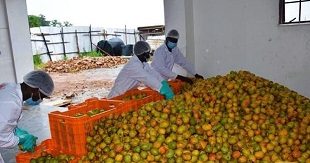
Kampala, Uganda | THE INDEPENDENT | The move by the government of Tanzania to restrict food exports to Uganda and Kenya is facing opposition from the private sector and politicians that it is not progressive.
This financial year, Tanzania reintroduced food export restrictions including new tariffs and forcing traders to open up offices in Dar es Salaam, as well as applying for export permits is they have to export.
At a recent dialogue with farmers, processors and traders in Dar es Salaam, agriculture minister, Hussein Bashe announced that whoever wanted to buy food anywhere in Tanzania, had to do so through a locally registered company.
“And this directive also affects buyers from countries like Uganda, DRC, Burundi, Kenya and Rwanda,” he said, adding that the move is aimed at protecting farmers against exploitation and would also help in price regulation.
Several members of the Tanzania parliament have criticised the move as capable of hindering free trade, with others saying farmers in many areas are already stuck with huge stocks of food amidst price falls, since it’s harder to sell.
The East African Business Council (EABC) however welcomes the move by Tanzania saying it is aimed at making agriculture trade formal.
EABC Executive Director, John Bosco Kalisa says this should be emulated by the rest of the EAC, but in an organised way. According to him, Tanzania seems to have introduced the measures abruptly,even without sensitising the farmers themselves.
East African Community states are grappling with issues of food insecurity and this is being abetted by failure by the governments to respect the bloc’s treaties.
Uganda, the biggest food producer in the region per person, has itself been affected by food insecurity almost every year, with some parts encountering bouts of famine, while in others there is plenty.
Kenya, which has the lowest production level in the region compared to its population size, relies on the imports from Uganda and Tanzania to bridge the gap, taking advantage of its more developed storage infrastructure and food policies.
Kalisa warns that the EAC countries should learn to coordinate amongst themselves when making policies and regulations that affect the people and the business communication across the region.
In mid June, Tanzanian authorities blocked dozens of Uganda-bound trucks from ferrying agriculture products mainly rice and maize across the Mutulula border, saying it had suspended the exports.
Uganda was expected to increase rice imports from Tanzania following the scrapping of taxes on the commodity from the southern neighbour.
Kalisa wondered why the governments and the EAC have failed to implement laws that promote intraregional trade and support exports. He says instead, that the countries are promoting imports from other regions at the expense of the progress of local producers.
On what the private sector is doing to mitigate the effects of these challenges, Kalisa says they have launched a campaign to ensure that the region would never suffer from food insecurity in the future.
******
URN
 The Independent Uganda: You get the Truth we Pay the Price
The Independent Uganda: You get the Truth we Pay the Price


